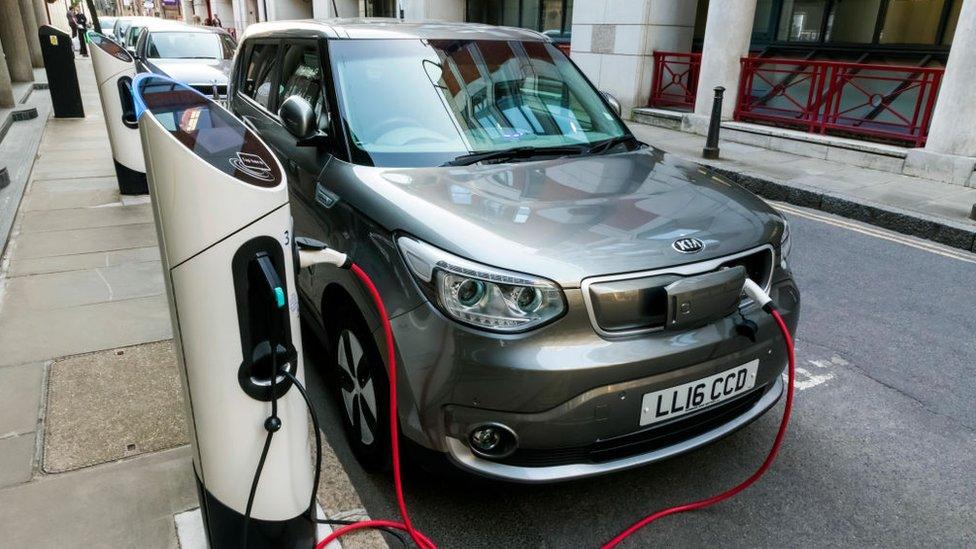Van sales soar amid home delivery boom
- Published
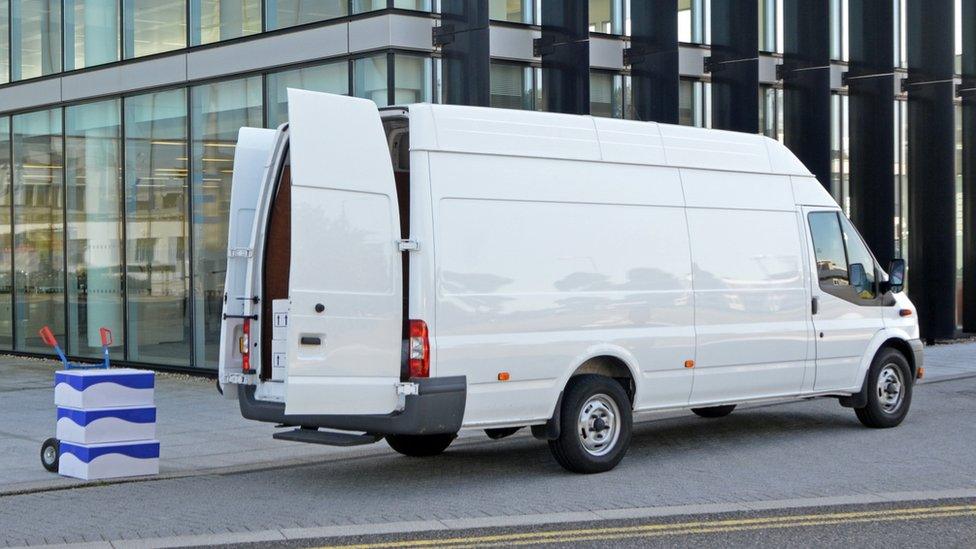
Sales of new vans in the UK came close to record levels during the first six months of 2021 due to a boom in home deliveries and the economy reopening.
But registrations of new cars remained sluggish, with a shortage of computer chips limiting supplies of some models.
The Society of Motor Manufacturers and Traders, which released the data, said the industry was now battling against a "long Covid" of supply problems.
This would restrict the UK car industry's recovery, the SMMT said.
Demand for electric cars, which remained relatively strong through the pandemic, has continued to rise. In June, they accounted for more than one in every 10 cars sold.
Prior to the pandemic, demand for new vans was already very strong - in 2019, sales in the first six months of the year were the highest on record.
Industry experts say this was largely due to the rapid growth of online shopping and home deliveries, as well as the introduction of so-called "clean air zones" in several cities, which prompted businesses to invest in new vehicles.
Inevitably, momentum was lost during the lockdown last year, and sales fell by 20% compared with the year before. Nevertheless, the soaring popularity of home delivery services meant the vans business suffered less severely than other parts of the auto industry.
Now, with the economy reopening, demand is strong once again. In the first six months of the year more than 191,500 were sold, the third highest total on record.
That happened despite the continuing shortage of computer chips, or semiconductors, which affected production volumes and deliveries in June, and took some of the energy out of the market.
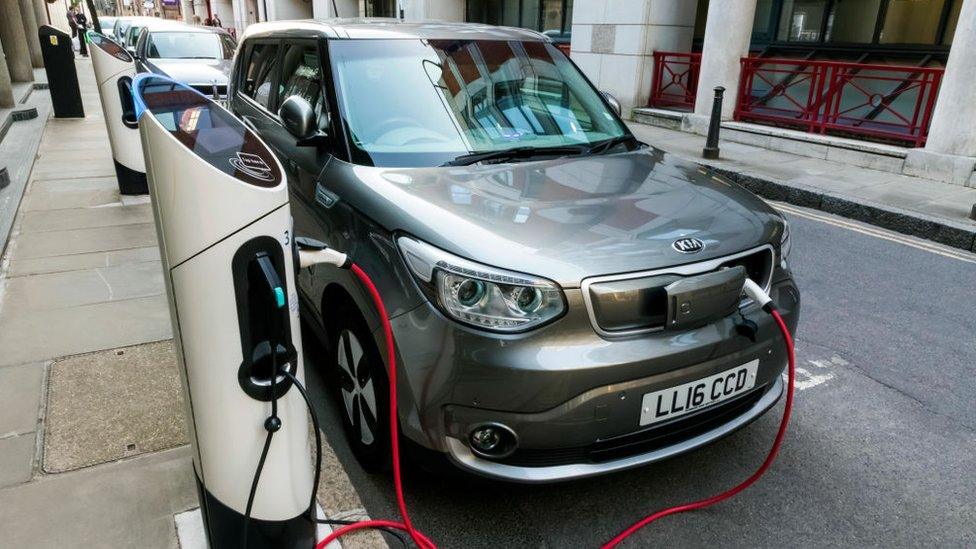
Electric cars accounted for more than one in 10 cars sold last month
Car sales, meanwhile, which remain much higher than those of commercial vehicles in terms of overall volume, have failed to recover at the same speed.
Some 186,000 new cars were registered in June, on the face of it a very significant increase of 28% over the same period last year. But the comparison is artificial; last summer, showrooms were only just beginning to reopen after the first lockdown, and sales were still very low.
Compared to the average over the past decade, sales were down 16.4% in June and 26.8% for the first half of the year. While there has been a surge in demand from company fleet buyers in particular, the semiconductor shortage has affected supplies, slowing the recovery.
"With the final phases of the UK's vaccine rollout well under way and confidence increasing, the automotive sector is now battling against a 'long Covid' of vehicle supply challenges," explained Mike Hawes, the chief executive of the SMMT.
"The semiconductor shortages arising from Covid-constrained output globally are affecting vehicle production, disrupting supply on certain models".
Despite the disruption, sales of electric vehicles have continued to rise rapidly. In the first half the year nearly 74,000 new battery powered cars were registered - more than six times the figure from the same period in 2019.
In June, more than one in every 10 cars sold was electric, and EVs had a greater share of the market than diesels.
Meanwhile, the chip shortage, which has left some customers facing long waits for their new cars, has boosted the second-hand car market. In fact, prices of used cars, which usually depreciate, have been rising.
"Demand is high", explains Jamie Hamilton, automotive director at Deloitte. "But the limited availability of new cars means that there are even fewer used cars coming onto the market. As a result prices have shot up.
"Unfortunately, there is little respite for the industry, with the semi-conductor shortage expected to continue causing issues throughout the year, and maybe even into 2022".
Related topics
- Published2 July 2021
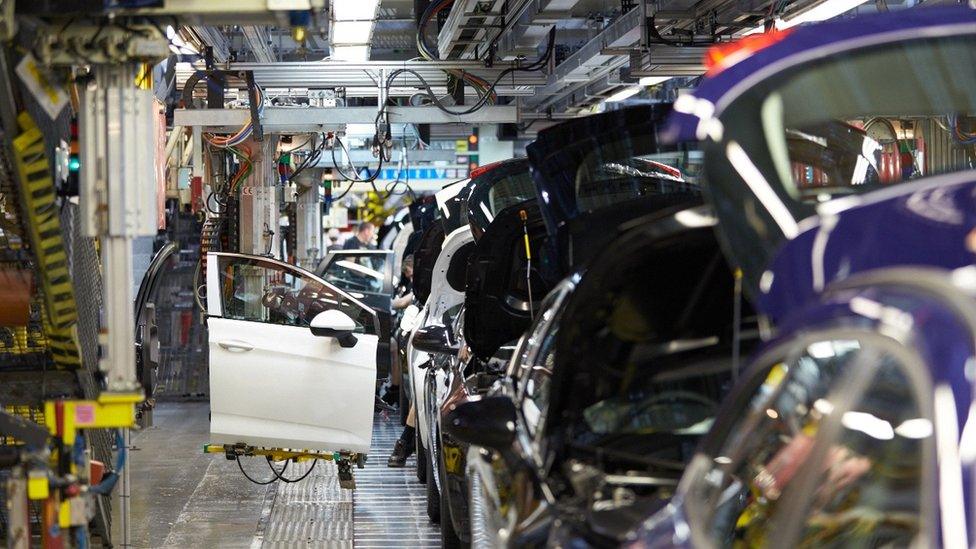
- Published1 July 2021
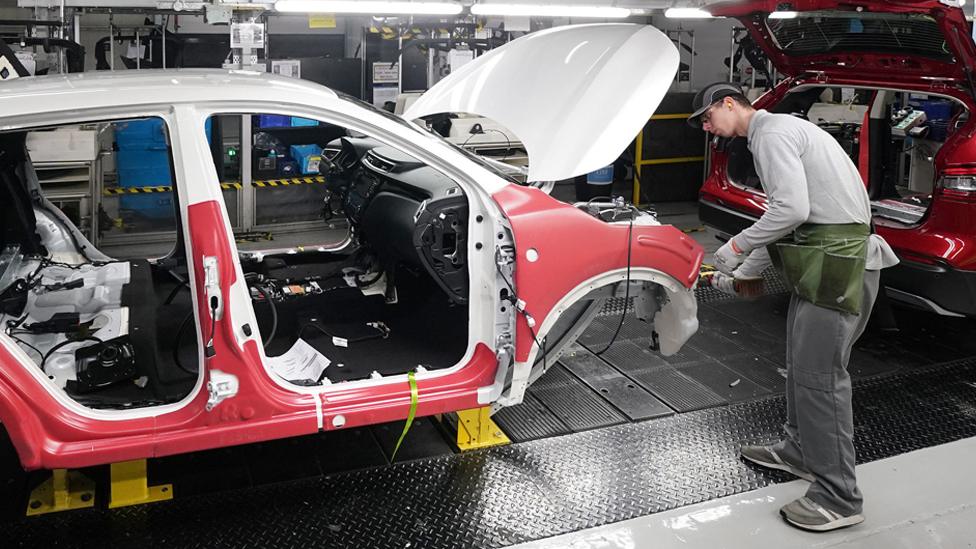
- Published29 June 2021
